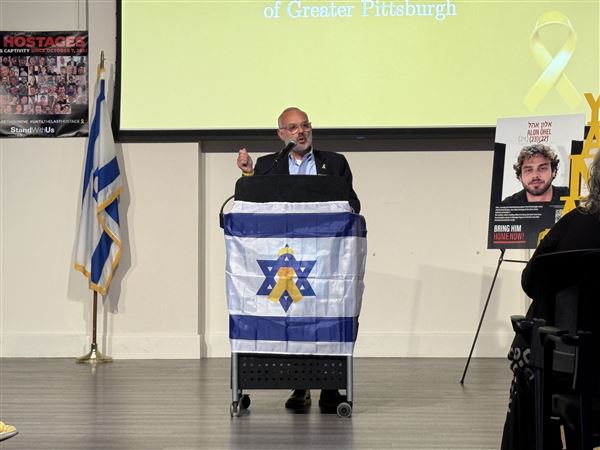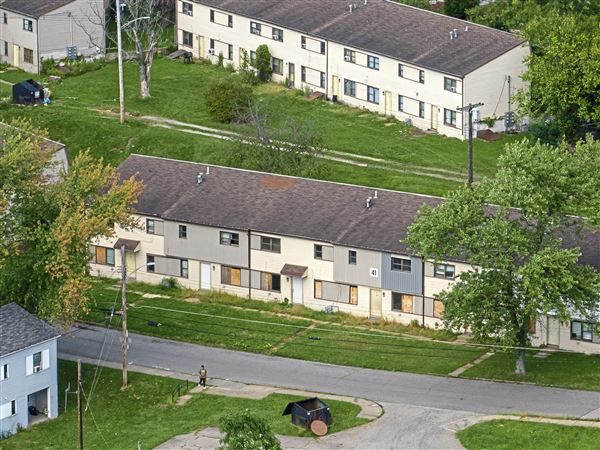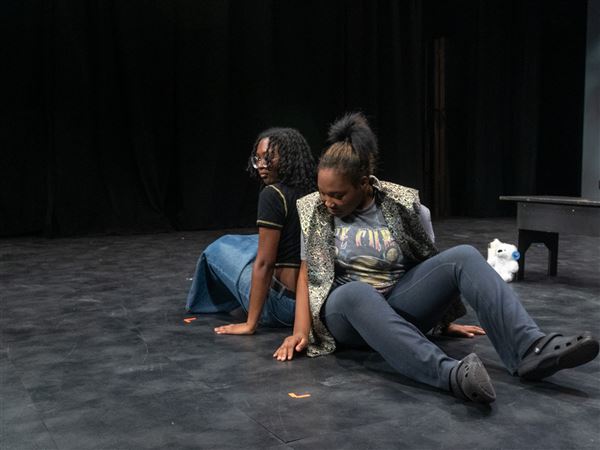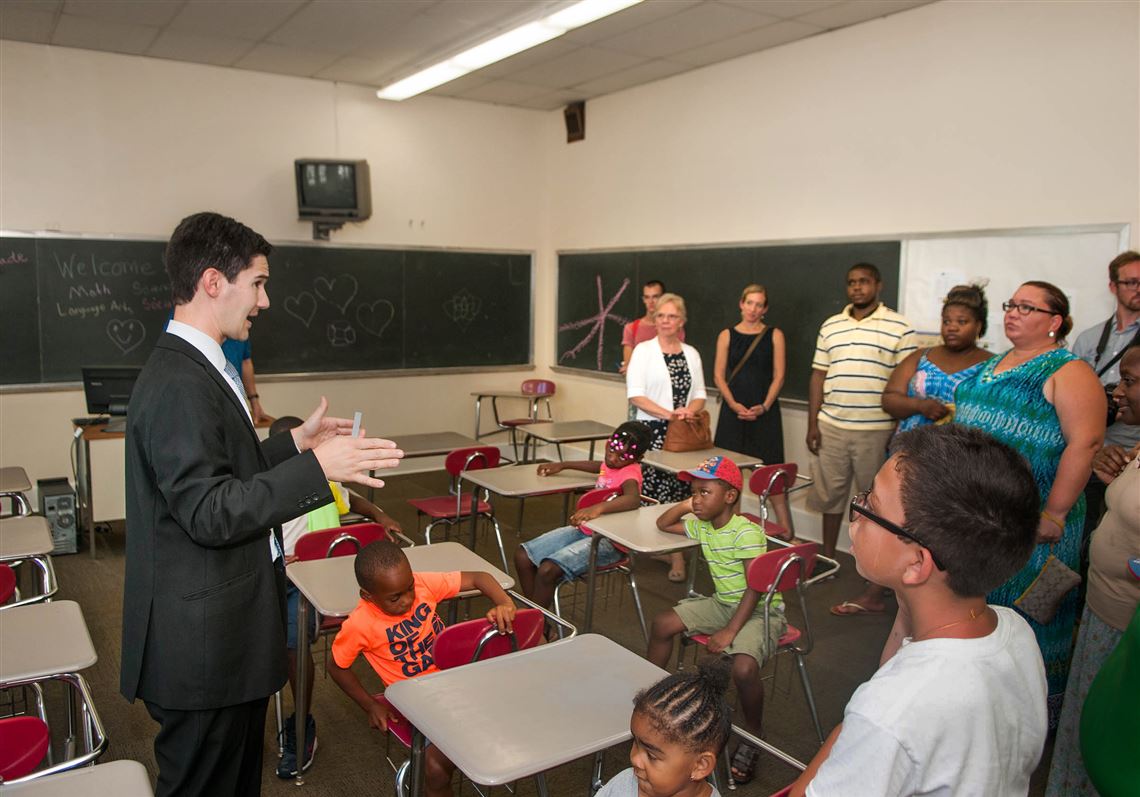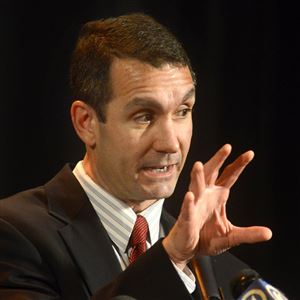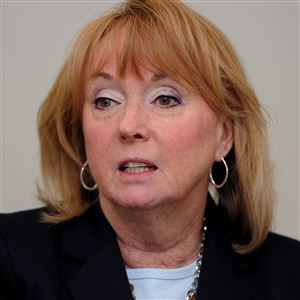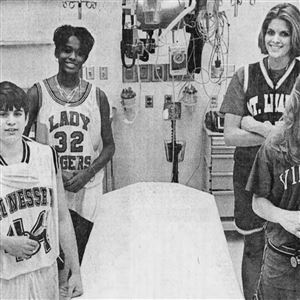After six years of planning, a challenge in court and a volley of appeals, Brett Marcoux isn’t going to let a paint job or two stand between him and the opening of the state’s first public charter school for children with dyslexia.
“Finally, we're open!” the CEO and president of Provident Charter School told a group of more than 100 school officials, families, dyslexia experts and local leaders, who gathered in a stuffy hallway of the Troy Hill school for an open house and ribbon cutting Wednesday.
The cafeteria is still being cleaned and painted, and other projects are in the works, but the classrooms look ready for the first day Aug. 29. The charter school closed on the former North Catholic High School building in June.
Provident has so far drawn 42 students, some as far away as Butler and Beaver counties. The school initially will be able to enroll up to 96 students and will offer third and fourth grades in the first year with plans to serve second through eighth grades by 2021.
Roughly a dozen independent schools in the Philadelphia area work solely with children with dyslexia and other language-based learning disabilities, but none is free to parents, said Christine Seppi, a reading therapist and chair of the Pennsylvania Branch of the International Dyslexia Association.
Provident leaders say the school is among about 10 public charters in the country designed for children with dyslexia, which affects how the brain processes language and is associated with difficulty reading. About 1 in 5 children are affected in some way by the disorder, according to Ms. Seppi.
Those advocating for Provident “didn’t want to have a school that you had to be wealthy to send your child to,” she said. “The school not only gives parents another option, it means that you’re sending your child to a program that’s geared specially to them, where they’re not going to be the dummy, they’re not going to be the oddball.”
In February 2014, Pittsburgh Public Schools denied the school’s charter application, which led to appeals on both sides. Two years later, the state Commonwealth Court affirmed an earlier decision finding that Provident has met the requirements necessary to be granted a charter.
“We did not believe the charter school is doing anything innovative or anything different than what we offer,” said Pittsburgh Public Schools solicitor Ira Weiss. “We also believe that while the charter says they’re going to admit any student, I think they’re going to do all they can do to limit their program to their target.”
Maria Paluselli, Provident's chief learning officer, said a curriculum designed specifically for students with dyslexia, small group instruction and an hour daily of the Orton-Gillingham approach to teaching reading makes its offerings distinctive. She resigned from the Pine-Richland School District for her role and served as director of a Masonic after-school program for students with dyslexia for ten years earlier in her career.
For every 24 students, Provident will have four teachers. Students will do homework in class, so after the 4:15 p.m. dismissal, they can enjoy after-school activities and “parents can focus on being parents,” Mr. Marcoux said.
Mr. Weiss said he’s not sure yet how much the school will cost Pittsburgh Public.
Dori Campbell of Greensburg has enrolled her son Carter, who starts fourth grade this fall. She said her home school district isn’t equipped to meet his needs and those of her younger daughter, who both have dyslexia.
“It’s super exciting that it exists,” she said of Provident.
In remarks at the ribbon cutting, Mayor Bill Peduto said the building could have been torn down or turned into a condominium.
“What a great testament that it will remain a place of education in this amazing neighborhood.”
Molly Born: mborn@post-gazette.com, 412-263-1944 or on Twitter @molly_born.
First Published: August 4, 2016, 4:00 a.m.


